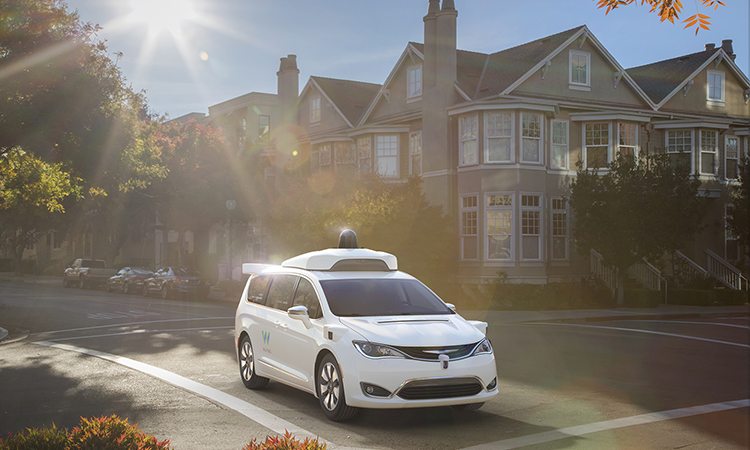On Jan. 30, Fiat Chrysler Automobiles (FCA) announced it will support the launch of the world’s first driverless ride-hailing service by delivering thousands of Pacifica Hybrid Minivans to Waymo in late 2018.
This is in addition to the 100 Pacifica minivans FCA sent in 2016, and the 500 more sent in 2017.
Some of these cars will be put to work when Waymo opens its autonomous ride-hailing service to the public in Phoenix later this year. Any extra vehicles will help Waymo expand across the U.S.
Waymo, a spin-off from Google’s parent company Alphabet, uses software and sensors developed in Google’s labs to improve transportation through self-driving vehicles. Waymo completed the first fully self-driving trip on public roads in October 2015 using a vehicle without a steering wheel or pedals.
Since then, Waymo has been testing its cars in 25 cities, from Atlanta and San Francisco to Metro Detroit, Phoenix, and Kirkland, Wash. After extensive evaluations, Waymo’s vehicles were the first to receive a Level 4 autonomy as determined by the Society of Automotive Engineers.
The Pacifica was specifically chosen because its electrical and structural systems are ideal for accommodating self-driving, and a never-before-seen collaboration between FCA engineers and Waymo has revamped those cars into self-driving vehicles on a mass production platform.
With a powerful hardware suite and self-driving software trained on four million on-road miles and billions of simulated miles, these are the most advanced vehicles on the road today. They’ve been subjected to over 20,000 structured tests to prepare for rare or unusual occasions, and they have backup steering and braking power just in case.
If that’s not enough to assuage your worries, the cars run hundreds of thousands of health checks every second and, if they detect an issue, they’re programmed to bring themselves to a safe stop.
In 2015, Gov. Doug Ducey issued an executive order directing Arizona state agencies to support the testing and operation of autonomous vehicles. Combined with the state’s drive for innovation and rapid growth, Arizona became a popular vehicle test site.
In response, Waymo took the cars it has been developing since 2009 and brought them to Arizona in 2016. At first, tests were soley done with someone in the driver’s seat. The car was still responsible for decisions—choosing a route, changing lanes, stopping, turning, or yielding—but a human monitored the car’s progress.
Then, in late 2017, alongside the human-monitored cars, Waymo began testing cars without anyone behind the wheel. At the same time, Waymo partnered with organizations like Mothers Against Drunk Driving and the National Safety Council to launch a public education campaign about how self-driving could benefit society.




